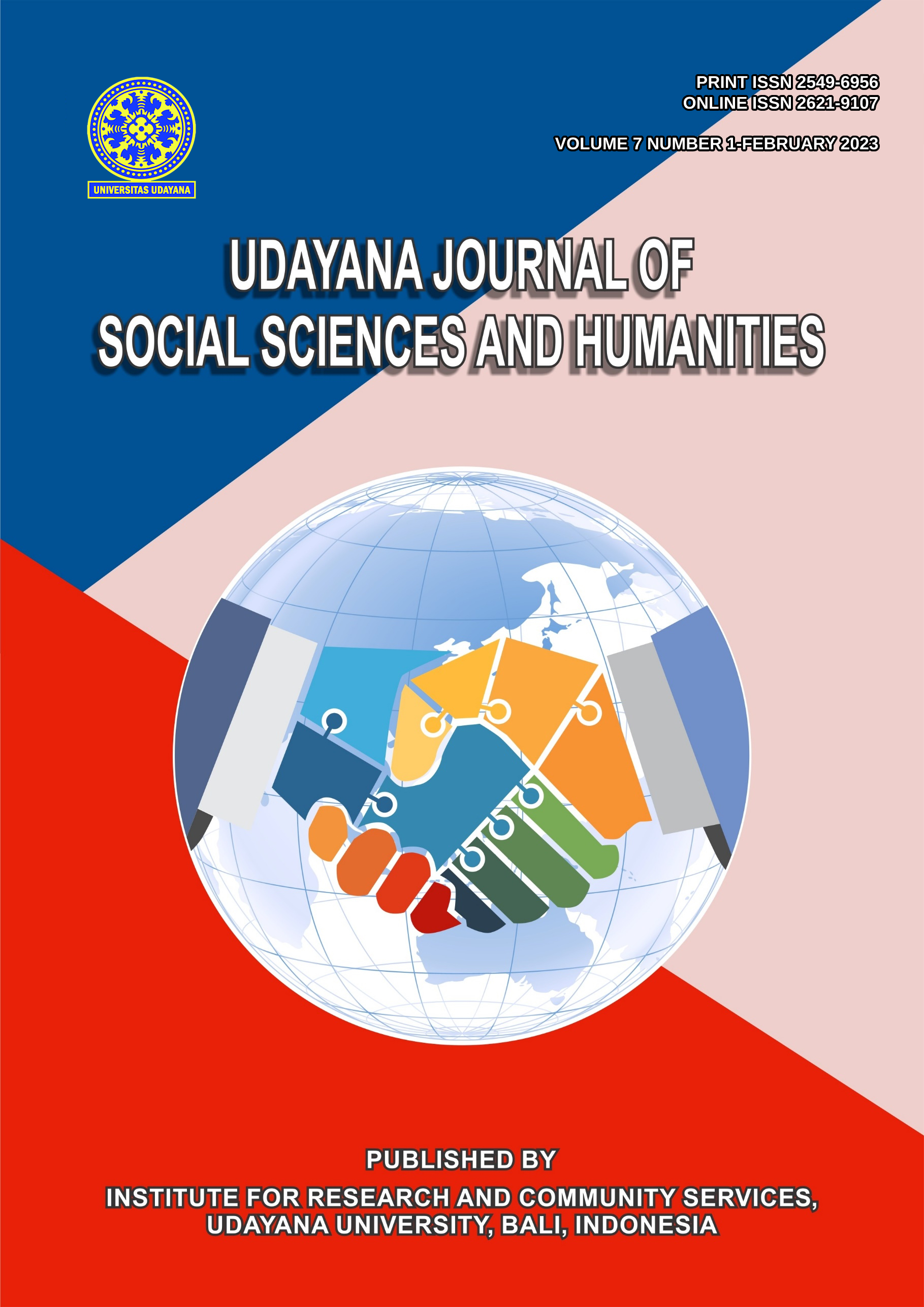The The Use of Smartphone to Improve Pronunciation Ability of 6th Grade Students in Sikka Regency
Abstract
The objectives of this research were to prove that using smartphone can increase pronunciation ability of 6th grade at SDN Ngolo, Sikka regency. This research applied pre-experimental research using one group pre-test and post-test. The researchers used all students from 6th grade as an object which consisted of 15 students. The result showed that the use of smartphone was able to improve pronunciation ability. It is proven by the hypothesis testing showed that the value of t-test (7.22) was greater than t-table (2.14479). The percentage of improvement was 31.4%
Downloads
References
[1] Adjei, D. N. (2019). The Use and Effect of Smartphones In Students’ Learning Activities: Evidence From The University of Ghana, Legon. Library Philosophy and Practice (e-journal). 2851 available at https://digitalcommons.unl.edu/libphilprac/2851
[2] Arikunto, S. 2010. Prosedur Penelitian Suatu Pendekatan Praktik. Jakarta: Rineka Cipta
[3] Creswell, J. W. (2014). Research Design: Qualitative, Quantitative and Mixed Methods Approaches (4th ed.). Thousand Oaks, CA: Sage.
[4] Gay, L.R (1981). Education Research. Competencies for Analysis ad Application. Florida: Florida Bell and Howell Company.
[5] Gilakjani, P.A (2012). A Study of Factors Affecting EFL Learners' English Pronunciation Learning and the Strategies for Instruction. Journal of Humanities and Social Science. 2(3).
[6] Harmer, Jeremy. (2007). The Practice of English Language Teaching, Fourth. Edition. Pearson Longman: Harlow
[7] Ilyosovna, N. A. (2020). The Importance of English Language. Iternational Journal on Orange Technologies (IJOT). 2(1), 22-24
[8] Jesicca, S., Basri, H., and Ohoiwutun, J. E. (2015). Improving Pronunciation through Listening to English Song. e-Journal of English Language Teaching Society (ELTS). 3(2), 1-10
[9] Leong, L. M. & Ahmadi, S. M. (2017). An Analysis of Factors Influencing Learners’ English Speaking Skill. International Journal of Research in English Education. 34-41.
[10] Purwanto, M.V. (1991). Prinsip-prinsip dan Teknik Evaluasi Pengajaran. Remaja Posdakarya. Bandung
[11] Sugiyono. (2013). Metode Penelitian Kuantitatif, Kualitatif dan R&D.Bandung: Alfabeta
[12] Tagoe, M., & Abakah, E. (2014). Determining distance education students' readiness for mobile learning at University of Ghana using the Theory of Planned Behavior. International Journal of Education and Development using Information and Communication Technology, 10(1), 91






